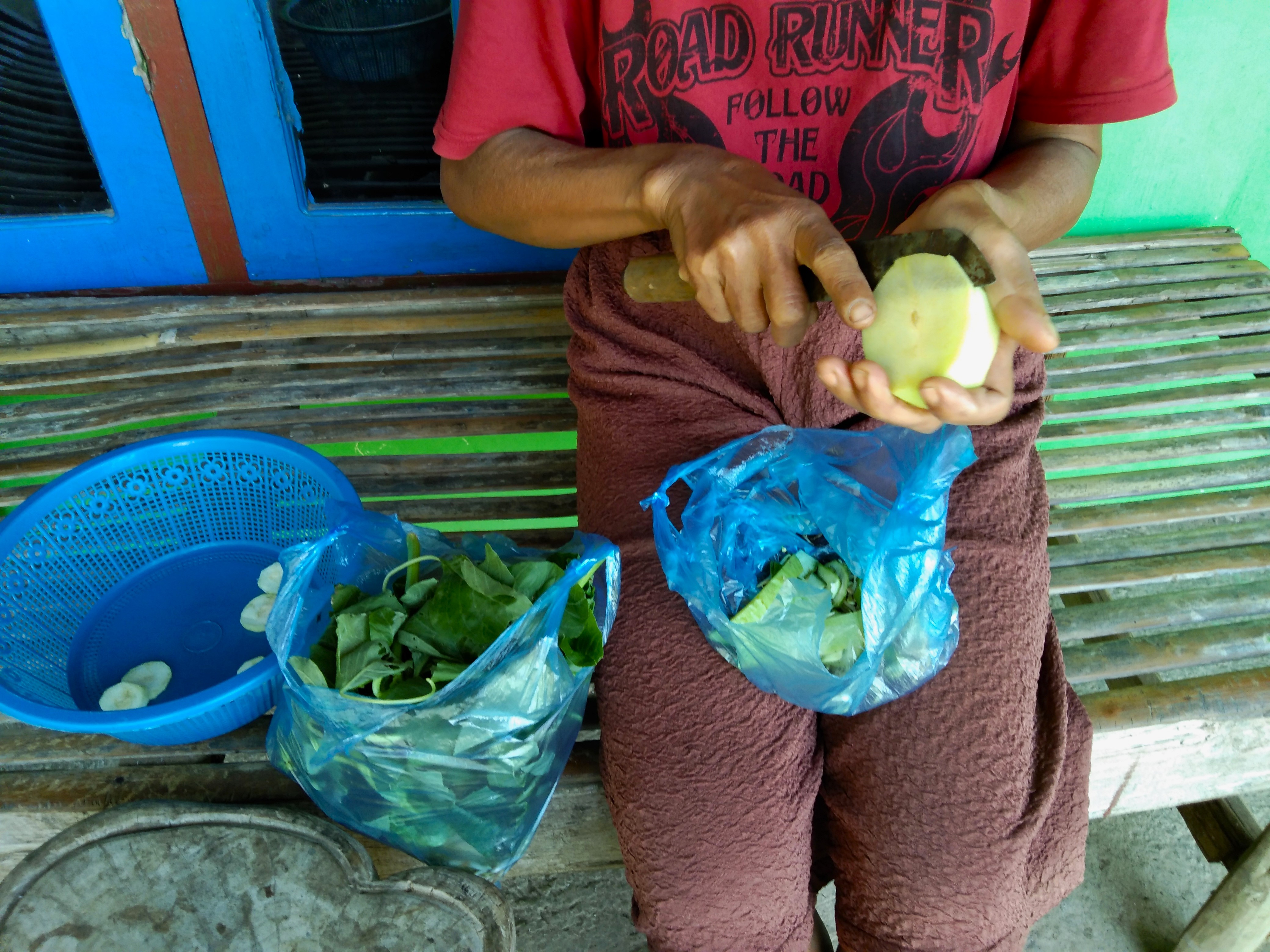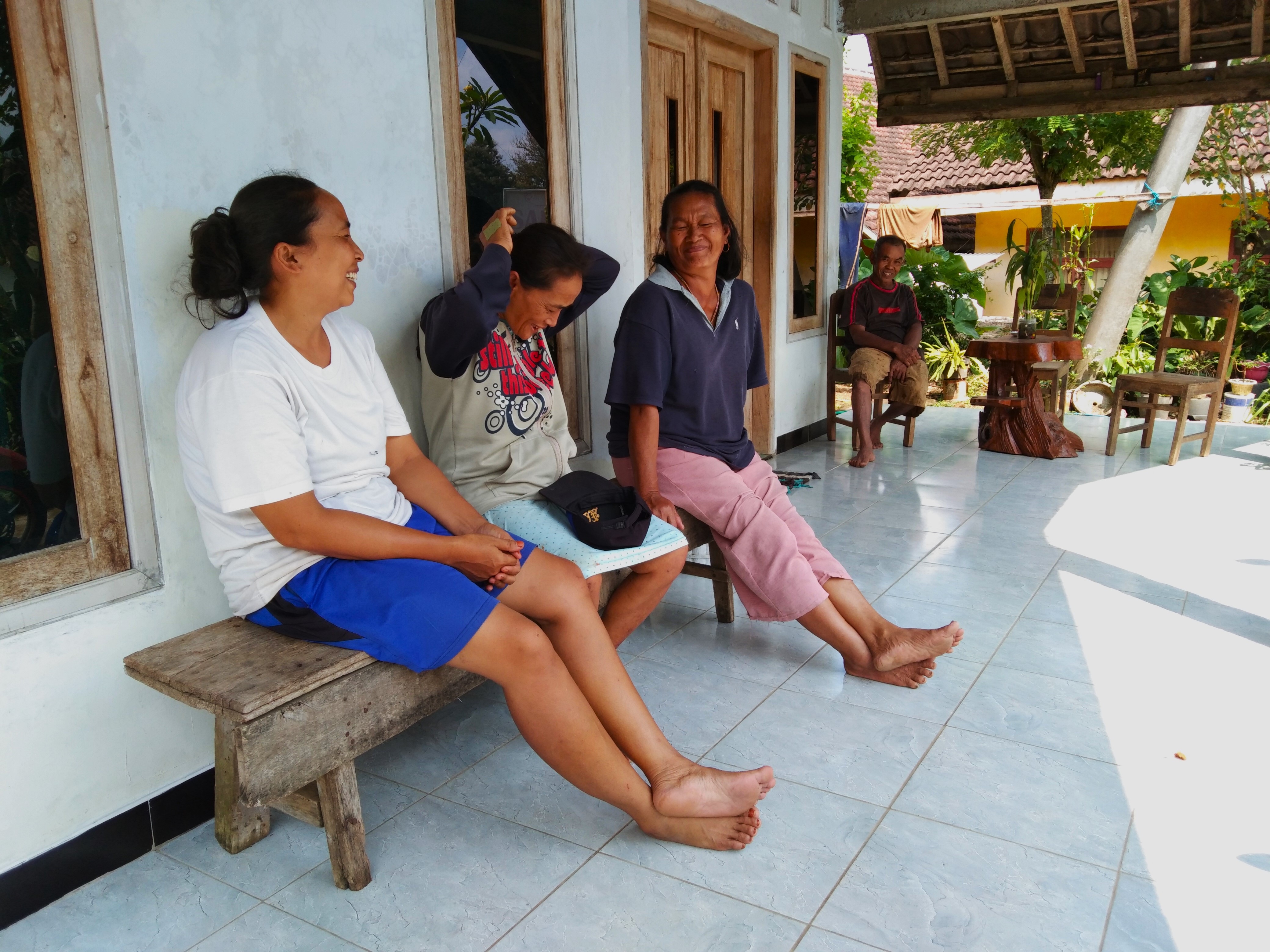
Community Activities of Sumberurip Village
Cooking is one of the activities that is indeed liked especially for mothers. In Javanese, it is called "olah-olah" which combines several spice mixtures and composes them accurately into 'food ready to be served to the family. The concept of family in Javanese society is built on several important foundations, including a sense of trust and trust between husband and wife. That sense of trust can be realized through cooking: a woman is trustworthy.
Some of the basic concepts are 'gemi', which means effective/effectiveness that is closely related to the sense of ownership. 'Nastiti' literally means careful. This attitude is closely associated with the use of property. A woman is required to be honest and trustworthy. 'Ngati-ati' has the meaning of being careful and a careful attitude.
The majority of the people of Sumberurip Village are farmers. They plant trees whose fruits and leaves can be cooked, and they cultivate spices for cooking. They are not professional chefs who have formal cooking knowledge, and their kitchen is not very good. Even though it is separate from the main house, it uses a wood-burning stove and simple cooking utensils. Their cooking is effortless.
'Gemi and 'setiti' make them never stop innovating with the ingredients around their fields. Considering the ingredients and the right composition of spices is a 'medicine' for the family. They can even serve 'special' dishes at certain moments, such as when they receive guests or family celebrations. Repaying the sincerity of Javanese women in cooking is only by appreciating their cooking.

"Nonggo" is one of the ways for the people of Sumberurip enjoyig their free time
Neighboring or in Javanese called 'nonggo' is entertainment for village communities. Village communities have written and unwritten rules. What applies are unwritten rules such as manners, etiquette, ‘ungah-ungguh’, ‘teposeliro’ etc. And, they understand it very well and then they always implement it, one of which is manners towards neighbors, namely relations between neighbors based on noble morals so that harmony, caring for each other, loving each other are realized.
Some manners in being neighbors or 'nonggo' are saying greetings to strengthen brotherhood. Greetings as a real manifestation of friendliness. Extending a hand as a sign of generosity who is always willing to help in the form of wealth, energy, morale, enthusiasm, etc. Giving each other gifts can be in the form of cooking, side dishes, spices, etc.
They can share stories or sad or happy experiences. If one of them shares a sad story, they never get tired of listening, if one of them needs help, their hands are always open to help. Almost every conversation always begins with asking each other how the other neighbors are doing. Then they ask each other about other neighbors who have not been seen for a long time. If they hear news that the neighbor they are talking about is sick/in trouble, they tell the others and then visit them together.
Even their chats were about cooking; what are you cooking today and what are the side dishes? Not infrequently they told me about the cooking plans for the next day. The questions that came up were; do you have the spices? No objection, one of them offered the cooking spices. Their chats developed towards farming. How are the plants they planted in the garden developing, how are they being cared for, the role of the village community is not only cooking, but they also help their husbands in the garden.
They seem to agree on a 'hanging out' schedule, namely in the morning/afternoon after returning from the garden before their children come home from school, or before their husbands come home from the garden. Usually, women come home from the garden first. Or in the afternoon before sunset. After sunset, they spend time at home with their husbands and children.

Tag: accomodation, coffe, coffebean, community, cooking, culinary, culture, cycling, ecotourism, explore, farmer, green, harvest, hospitality, local, nature, plantations, spice, traditional, travel, trekking, village
